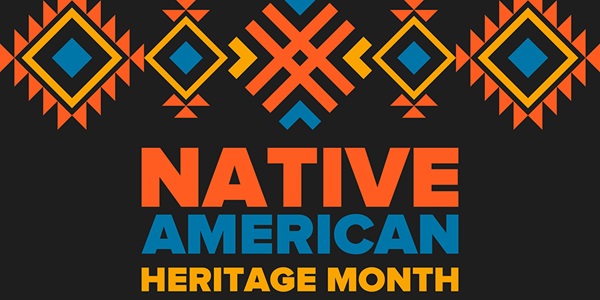November 1—Native American Heritage Month (American Indian and Alaska Native Heritage Month, November)
A Moment for Mission
“Taste and see how good the Lord is! The one who takes refuge in him is truly happy!” —Psalm 34:8, CEB
The Maskoke Seminole language is among the 7,000-plus indigenous languages globally that are on the brink of extinction. From across Oklahoma to east of the Mississippi, only about 350 fluent Maskoke speakers remain. Marcus Briggs-Cloud is racing against time to revive the language he considers key to his tribe’s culture, history and identity.
“I [used] to think that a viable solution to language loss was that you get in a classroom and you teach the language,” said Briggs-Cloud, a former language instructor for the Department of Anthropology at the University of Oklahoma. “I realized nobody has ever learned a language sitting in a classroom.”
For the past 16 years, Briggs-Cloud has worked toward creating an ecovillage, located in a parcel of the tribe’s ancestral homelands in what is now Weogufka, Alabama.
“I wanted to make an ecovillage community where we can be good to the earth, keep our language and culture alive, and be able to live as a full-time Indian so that we don’t have to schedule a ceremony at the mercy of the American labor force schedule,” he said.
November—Native American Heritage Month—is a time to celebrate rich and diverse cultures, traditions and histories and to acknowledge the important contributions of Native people. Briggs-Cloud is playing an important role. He hopes that in 25 years, Ekvn-Yefolecv Maskoke ecovillage will be a place where one can still hear the Maskoke language spoken fluently.
—Adapted from “Preserving Culture Identity and History through Indigenous Languages” by Ginny Underwood, May 6, 2020. Used by permission.
Offertory Prayer
Loving God, thank you for being our refuge in times of trial and our joy in moments of celebration. May we honor and appreciate each of your children. In your name, we pray. Amen.
From Discipleship Ministries: All Saints Day/Twenty-Second Sunday after Pentecost – God of all generations, as we worship today, we offer our whole selves to you, all that we have and all that we are. Like your saints who have gone before us, we pray that you will help us be bold in our mission and in our witness. May we who have been given so much give freely, ministering in your compassion to the multitudes near to us and far from us; so that one day we may stand amidst the multitude that gathers at your heavenly throne. We pray this in the name of our Savior and Redeemer, Christ our Lord. Amen. (Revelation 7:9-17)
Newsletter Nugget
Native American Heritage Month is an opportunity to raise awareness about the unique challenges Native people face, and share the ways in which tribal citizens conquer those challenges.
Twenty years ago, the number of Yuchi language speakers could be counted on one hand. Decades of government policy, including forced removals from tribal lands and stripping Native Americans of their language, culture and identity, had led to a pivotal moment for tribal member Richard Grounds.
“It became pretty clear that as we began to lose elders, the fire that was the language was about to go out,” said Grounds, research professor of anthropology at the University of Tulsa and member of the Yuchi Tribe of Oklahoma. “We needed to take direct steps to … save the language.”
During graduate school, he began a community class for children.
Today, Grounds’ daughter, who participated in the apprenticeship with elders, speaks Yuchi fluently and leads the children’s language classes at Pickett Chapel United Methodist Church, Sapulpa, Oklahoma.
—Adapted from “Preserving Yuchi Culture and Identity through Language” by Ginny Underwood, June 5, 2020. Used by permission.

